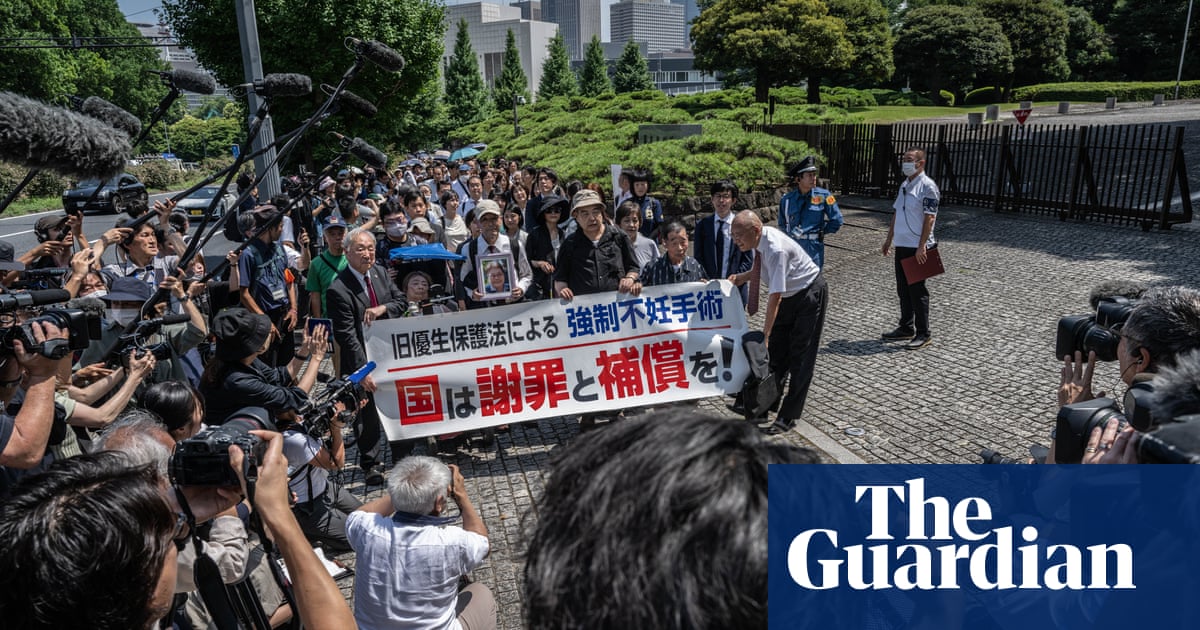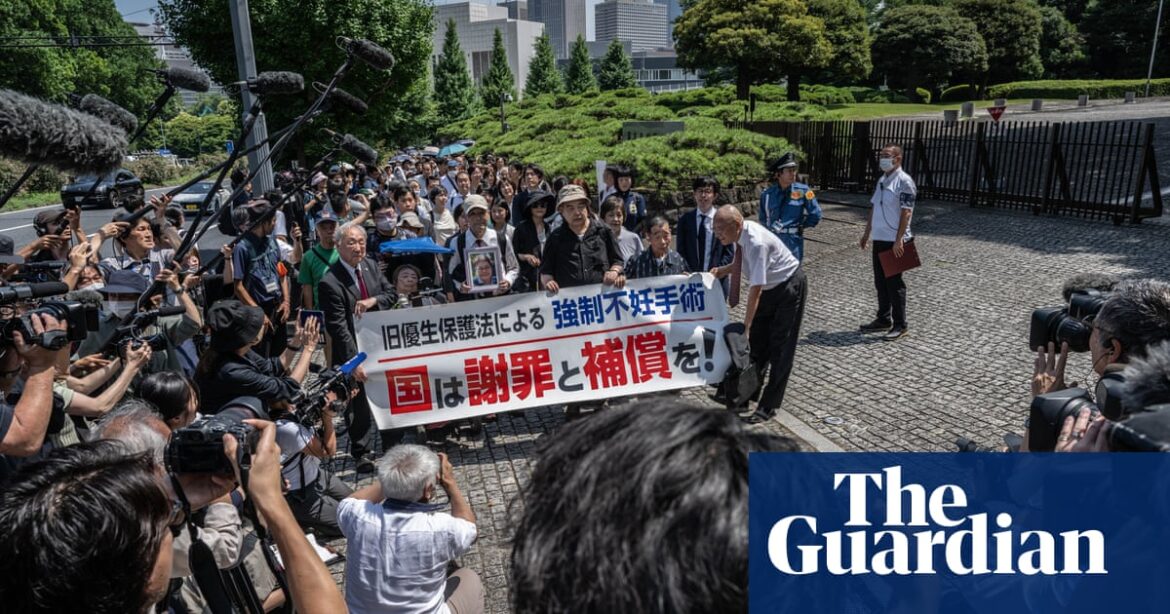
Japan’s supreme court has ordered the government to pay damages to dozens of people who were forcibly sterilised under a now-defunct eugenics law, saying the practice had violated their constitutional rights.
Wednesday’s ruling by the country’s highest court marks a major victory for the 39 plaintiffs, and thousands of other people with illnesses and genetic and mental disorders who had undergone procedures without their consent, mostly between the 1950s and 1970s.
The compensation claim rested on whether the court would accept the government’s argument that the plaintiffs could no longer seek redress as a 20-year statute of limitations applying to the cases had expired.
The 1948 eugenic protection law, which was not abolished until 1996, allowed doctors to carry out forced sterilisations to “prevent the generation of poor quality descendants”.
Japan’s government has acknowledged that 16,500 people – some as young as nine – were forcibly sterilised under the law. A further 8,500 who gave their consent were likely to have come under intense pressure to do so.
All 15 supreme court judges found the eugenics law to be unconstitutional, the Kyodo news agency reported. They said the legislation violated article 13 of the constitution, which protects people against undergoing physically invasive procedures against their will, and article 14, which stipulates the right to equality.
One of the victims, Saburo Kita, was persuaded to undergo a vasectomy when he was 14 and living in a facility for children with behavioural problems. “I have had an agonising 66 years because of government surgery,” Kita, who uses a pseudonym, said before the ruling.
“I was robbed of my life and want it back,” added the 81-year-old, who only told his wife about his ordeal shortly before she died in 2013.
A government document from 1953 said physical restraint, anaesthesia and even “deception” could be used to facilitate the operations. A small number of forced sterilisations were conducted in the 1980s and 1990s before the law was abolished.
Japan was forced to confront its connection with eugenics in 2018, when a woman in her 60s sued the government over a procedure she had undergone at 15 due to an intellectual disability, prompting a flood of similar lawsuits.
The government “wholeheartedly” apologised after legislation was passed in 2019 stipulating a lump-sum payment of ¥3.2m (about £15,750 today) for each victim.
The then-prime minister, Shinzō Abe, voiced “sincere regret”, adding: “During the period the law was in effect, many people were subjected to operations that made them unable to have children based on their having a disability or another chronic illness, causing them great suffering.”
Survivors said the sum did not match the severity of their suffering and took their fight to court.
In those cases, four high courts awarded damages – ¥11m to ¥16m to each plaintiff, as well as ¥2.2m to the spouse of a deceased victim – and ruled that invoking the statute of limitations would be “grossly unjust”. A fifth did apply the statute, but agreed with the others that the law had been unconstitutional.
Germany and Sweden had similar measures, but have since apologised to victims and provided compensation.
The cases have highlighted the Japanese state’s past mistreatment of people with disabilities and chronic illnesses. In the 1950s, thousands of leprosy patients were forced to live in sanatoriums located in mountains or on remote islands. Many were sterilised or made to have abortions.
“The ruling will hopefully pave the way for active steps to be taken by the government to eliminate the kind of eugenic mentality that it created,” Saburo Kita’s lawyer, Naoto Sekiya, said before the ruling.
Agence France-Presse contributed to this report
Source: theguardian.com



